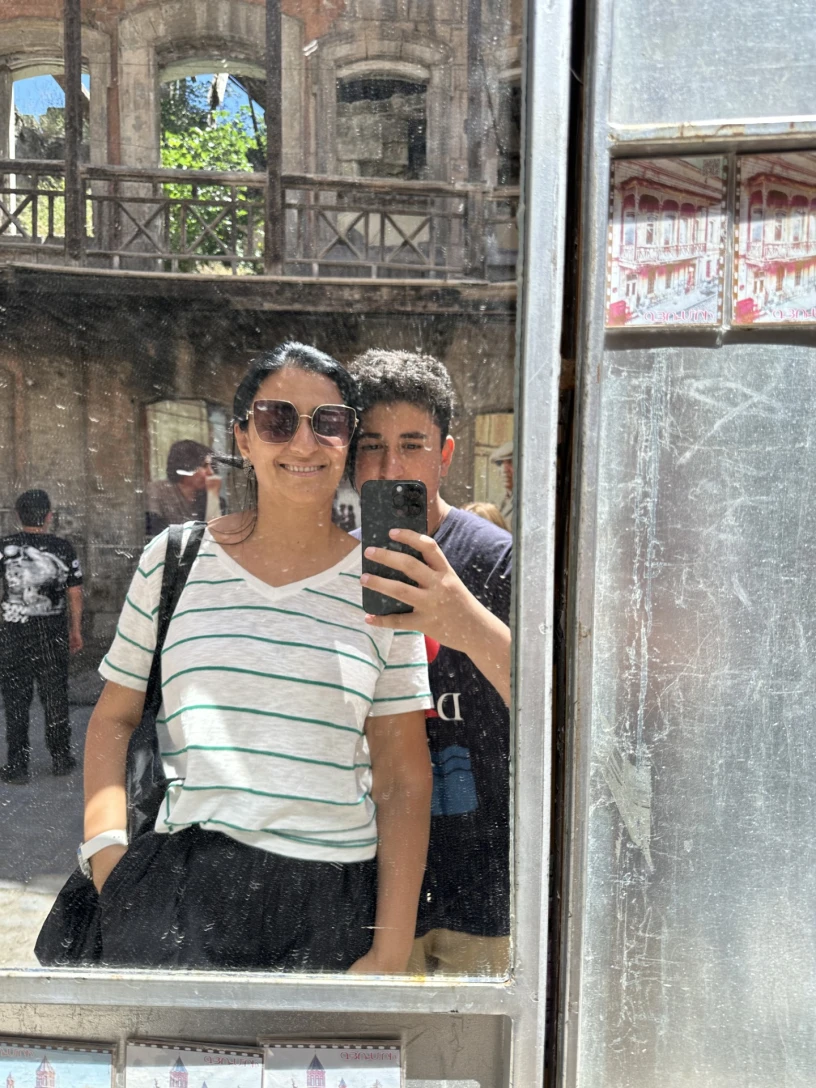In recent years, we have been talking a lot about teacher trainings, professional development seminars, etc. It is constantly emphasized that the teacher should…, the teacher does not know… The underestimation of the teacher’s work, its low rating, and the low salary have led to the fact that the number of people who want to work as a teacher is decreasing year by year. In fact, the number of teachers in the republic has decreased. There are a lot of vacant positions for school teachers. Various solutions are proposed and tested to fill the vacant positions. However, the fact is that the problem is getting deeper every year. There exist many vacant places, we face continuous dissatisfaction and depression of teachers.
Teachers’ trainings which are developed and renewed every year, voluntary and mandatory attestations do not have the desired effect. Pressure and dissatisfaction are increasing. In this text, I want to raise two questions and talk about them:
- Teachers’ voluntary attestation as a test of their subject knowledge
- Mandatory attestation of teachers
It is important to understand that teaching is a profession, and to continue further discussions from this key point. Let me quote Article 26, Clause 1 of the State Standard of General Education:
A teacher of an educational institution can be a person who has received an appropriate pedagogical qualification with a higher education or has a higher education and at least five years of work experience in the pedagogical (or teaching) activity of a given subject within the last ten years.
There arises a question, if a person has received a higher education, has the appropriate qualification issued by the relevant university, why do we check his/her knowledge of the subject? On what grounds don’t we trust the university? If there is mistrust as we think there are gaps here, why don’t we develop an appropriate concept demanding an open and transparent activity from the university? But checking the teacher’s subject knowledge because of our mistrust… What does it give to the school, to the child…? The teacher must have pedagogical skills to be able to work effectively with the child. Checking the teacher’s knowledge in tricky subject exceptions is absolutely not necessary.
The logic of mandatory certification of a teacher becomes more complete if knowledge of the following components is emphasized: educational legislation, psychology, and teaching methodology of an educational subject. But why do we fail and run into a wall here, and every year we face the fact that the expectations have not been met, and culprits are being sought: teachers, training organizations, or specialists.
We have several key issues here: we miss the opportunity for the teacher’s self-education and the educational environment as a workshop for the continuous development of the teacher’s skills. It is very important to develop the teacher’s ability and desire to self-educate, offering certain directions. In fact, one of the important prerequisites for education and continuous development is self-education. If there is no such skill and the desire to constantly learn, the rest is unnecessary. The state financial allocations should be directed to the teacher, and the teacher can spend the allocated money at his/her discretion, organizing his/her own trainings and continuous development.
The author educational program creates an open environment for the teacher’s self-education. It continuously and consistently encourages self-education, indirectly transferring self-education skills, showing its example.
The educational complex is an open laboratory environment where the development of the teacher’s skills is continuous. The educational environment, with its developments, constantly advancing and developing requirements, creates an open environment for continuous training and self-education.
The continuous development of the teacher’s qualities in the author’s educational program
- monthly seminars of professional groups, online discussions,
- seminars, trainings organized at pedagogical camps, according to the requests submitted by the teachers, the need, the directions of the development of the author’s educational program,
- seminars, trainings outside the educational complex. according to the applications submitted by the Pedagogy Laboratory, Pedagogy Center, or the individual teacher,
- monthly seminars of professional groups, online discussions,
- studies, methodological developments, presentation of pedagogical experience in the “Dpir” pedagogical magazine,
- gatherings of the literary club,
- gatherings of the pedagogical club,
- library, media library,
- self-education
Camps, educational trips as an open environment for self-education
- entrance camps,
- beach camps of supplementary education,
- labour camps,
- educational cams in Arates, Artanish,
- rural camps,
- festival camps,
- technological camps,
- other
Clubs aimed at teacher development and health
- Literary club: discussions of literary texts, readings, meetings with contemporary writers,
- Pedagogical club, including teachers, teachers-parents of family schools, specialists applying for the teachers’ positions,
Open activity of sculptural, theatrical, dancing, and choir clubs of educational workers
- Pedagogical tennis club,
- Sculpture club
- Activities of branch-school clubs, TV-radio editorial offices, other project groups of the educational complex.
Participation in national seminars, conferences, competitions, trainings, international online seminars.
The educational environment is a real laboratory for testing the teacher’s professional skills. with its open environment, both physical and online, which promotes the creation of a constantly creative and thinking teacher.
A teacher who is not afraid to present his/her work, to tell about it. A teacher who has publications in the “Dpir” pedagogical magazine, where he/she tells and develops his/her pedagogical experience, gets acquainted with the experience of others. A teacher who appears at seminars, club gatherings, speaks and defends his/her project.
The calendar of the author educational program, with annual pedagogical open gatherings, teacher camps, reviews, is aimed at the discovery and development of these skills. It’s a good experience. The origin of this experience is Armenia. It is worth approaching seriously, reflecting on it.

